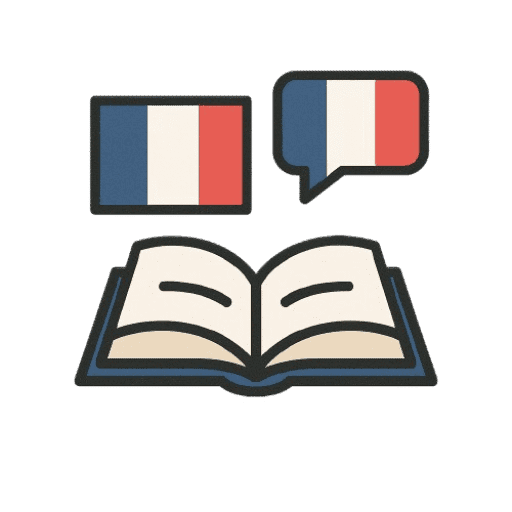Goal: Understand how reflexive verbs work and how to use them in everyday French.
What Is a Reflexive Verb?
In English, you sometimes say:
“I wash myself” or “She gets up.”
You’re doing something to yourself.
In French, that’s called a reflexive verb.
In the dictionary, these verbs look like this:
- se laver → to wash oneself
- s’appeler → to call oneself (used for names!)
- se réveiller → to wake up (oneself)
Common Reflexive Verbs
| French Verb | Meaning |
|---|---|
| se laver | to wash oneself |
| se lever | to get up |
| s’habiller | to get dressed |
| se coucher | to go to bed |
| se réveiller | to wake up |
| s’amuser | to have fun |
| se dépêcher | to hurry |
| s’appeler | to be called |
What changes in reflexive verbs?
You need to add a reflexive pronoun. It goes before the verb and changes depending on the subject.
| Subject | Reflexive pronoun |
|---|---|
| je | me |
| tu | te |
| il/elle/on | se |
| nous | nous |
| vous | vous |
| ils/elles | se |
Special rule: apostrophe (elision)
When the reflexive pronoun me, te, or se comes before a verb that starts with a vowel or silent “h”, it becomes:
- me → m’
- te → t’
- se → s’
✅ Examples:
- Je m’appelle Emma.
- Tu t’habilles vite.
- Il s’appelle Hugo.
Conjugating Reflexive Verbs (Present Tense)
Let’s start with se laver (to wash oneself):
| Subject | Reflexive pronoun | Verb | Full sentence | English |
|---|---|---|---|---|
| je | me | lave | Je me lave. | I wash myself. |
| tu | te | laves | Tu te laves. | You wash yourself. |
| il/elle | se | lave | Il se lave. | He washes himself. |
| nous | nous | lavons | Nous nous lavons. | We wash ourselves. |
| vous | vous | lavez | Vous vous lavez. | You (all) wash yourselves. |
| ils/elles | se | lavent | Ils se lavent. | They wash themselves. |
Another common one: s’appeler (to be called)
Very useful when saying your name!
| Subject | Reflexive pronoun | Verb | Full sentence | English |
|---|---|---|---|---|
| je | m’ | appelle | Je m’appelle Emma. | My name is Emma. |
| tu | t’ | appelles | Tu t’appelles Leo. | Your name is Leo. |
| il | s’ | appelle | Il s’appelle Marc. | His name is Marc. |
| elle | s’ | appelle | Elle s’appelle Clara. | Her name is Clara. |
| nous | nous | appelons | Nous nous appelons Max et Sophie. | Our names are Max and Sophie. |
| vous | vous | appelez | Vous vous appelez comment ? | What’s your name? |
| ils | s’ | appellent | Ils s’appellent Hugo et Tom. | Their names are Hugo and Tom. |
| elles | s’ | appellent | Elles s’appellent Emma et Anna. | Their names are Emma and Anna. |
Exercise
Which sentence is correct?
- Je s’appelle Julie.
- Tu t’appelles Lucas.
- Nous nous appelle Marie et Paul.
✅ Show answers (click here)
- ❌ Incorrect → should be “Je m’appelle Julie”
- ✅ Correct
- ❌ Incorrect → should be “Nous nous appelons Marie et Paul”
Quiz
Ready for the next step? Take this quiz to evaluate your use of the reflexive verbs.
✅ Recap
- Reflexive verbs = the subject does the action to itself
- They start with “se” in the dictionary
- Conjugated like regular verbs, but with reflexive pronouns
- Apostrophe rule with vowels and silent “h”
- Most common verb: s’appeler → “My name is…”
